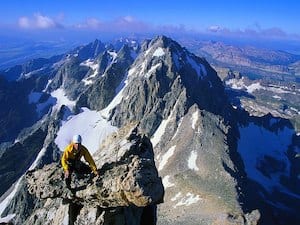
FRIDAY, Jan. 5, 2018 (HealthDay News) — The “madness” mountain climbers often experience isn’t a type of altitude sickness, as once thought, but rather an actual psychotic disorder, a new study suggests.
The study authors explained that mountaineers can suddenly lose touch with reality. Some believe they’re being chased. Others start talking to an imaginary person, or talk without making any sense.
Now, researchers have given this common phenomenon a definition and a name: isolated high-altitude psychosis.
“In our study, we found that there was a group of symptoms which are purely psychotic,” said co-author Hermann Brugger, head of the Institute of Mountain Emergency Medicine in Italy, part of Eurac Research. These symptoms are not linked to brain swelling at high altitude or other problems like fluid loss or infections, he explained in a news release from the research center.
Isolated high-altitude psychosis appears to be most common when climbers are higher than 7,000 meters (about 23,000 feet, or 4.35 miles) above sea level, the study found. Its cause remains unknown, but the researchers believe that lack of oxygen and simply being completely dependent on oneself could trigger it.
The cure: Come down the mountain. Symptoms then go away, without any signs of lasting damage.
The researchers drew their conclusions from information collected on about 80 cases of psychosis, primarily from writings about mountain climbing in Germany.
According to study co-author Katharina Hufner, of University Clinic in Innsbruck, Austria, “This discovery has allowed us to make a more thorough investigation of temporary psychoses in otherwise completely healthy people — an investigation which might yield important indications for the understanding of psychiatric diseases such as schizophrenia.”
And, she added, “There are probably unknown numbers of unreported accidents and deaths caused by psychoses. To reduce the number of such accidents, it is of the greatest importance to disseminate cognitive coping strategies which the mountaineers themselves, or with the help of their partners, can apply directly while on the mountain.”
More information
The National Safety Council has more about outdoor safety.
